Propane Vs. Natural Gas
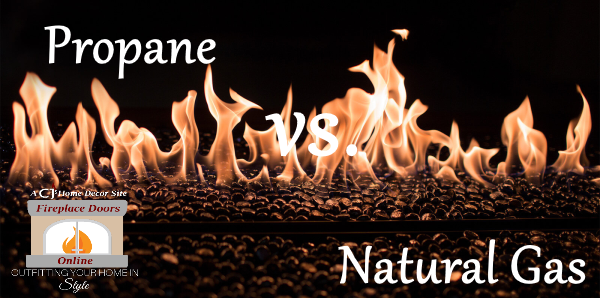
Ah, the decisions! When you are trying to figure out if you want propane or natural gas, the struggle can be real. There is so much information to help you out in the Googleverse. We want to slim it down for you and make it super simple. So we meet again to give you what you need to make this an easy decision and to arm you with the facts you will need. Hi ho, let's go!
Operation Propane
I'm sure you've heard of propane and have most likely used it at some point or another in your adult life. The question that I have for you is, do you really know what propane is? We want you to be educated and know what you are dealing with. So let's talk propane.
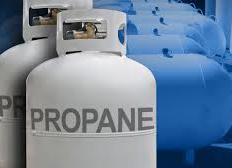 Propane is a fossil fuel mixed up with other types of gas, most commonly natural gas, and petroleum. Liquid propane is composed of the same decayed archaic animal and plant matter that is pressurized underground. To become the liquid propane you use in your propane tank, the propane goes through a refining process with natural gas and crude oil. After the refining process, the liquid propane is placed in a tank, like one used on a grill or delivered to a company for refilling a larger tank most commonly placed underground.
Propane is a fossil fuel mixed up with other types of gas, most commonly natural gas, and petroleum. Liquid propane is composed of the same decayed archaic animal and plant matter that is pressurized underground. To become the liquid propane you use in your propane tank, the propane goes through a refining process with natural gas and crude oil. After the refining process, the liquid propane is placed in a tank, like one used on a grill or delivered to a company for refilling a larger tank most commonly placed underground.
Now that you know probably more about propane than you want to, let's go over some more facts about propane. Liquid propane is considered a "green fuel". This means that propane burns cleanly and does not produce toxicity to the environment. Unlike most fuels, when burned produce a fair amount of greenhouse gas, propane produces little to no harmful toxins into its surroundings. This is great if you're trying to lower your carbon footprint!
Propane is odorless naturally and an added chemical through the refinement process gives the propane a scent in case of leaks. The added scent is important as propane is a heavy gas. Being heavier than air gas, in the event of a leak, propane will pool and could become harmful in a small area or within a house. Though still important to care properly for your propane tank and have the tank inspected, when your propane is kept outside, it is highly unlikely to cause any harm when a leak is present.
To wrap propane up, there are multiple ways to obtain propane. There is the small tank option, which is common for outdoor uses like your grill and can be purchased easily through a department store, hardware store, or gas station. A propane tank should never be stored inside or within 10 feet of a heating source. You also have the option to purchase or lease a large tank from your local propane gas company. Depending on what you use your propane for, shop around, and price it out.
All Na-tu-ral
Natural gas is another fossil fuel made up of ancient animal and plant elements pressurized underground to form the gas. The natural gas is drilled from underground and is a mixture of several different gases. The main ingredient of natural gas is methane, which is released when you burn natural gas. Natural gas is considered one of the cleanest fuels but does produce greenhouse gases into the environment that can be harmful.
Unlike propane, natural gas is not stored in tanks and is provided directly through a gas line. This is monitored and provided by a local gas company and you are billed 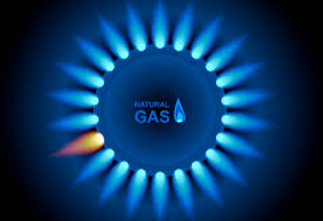 per your usage. This can be a cheaper option for a household but also could be a hassle for outdoor items. There would need to be a gas line available for input into a grill or fire feature in your outdoor spaces. Always reach out to your local gas company for assistance from a professional to avoid leaks!
per your usage. This can be a cheaper option for a household but also could be a hassle for outdoor items. There would need to be a gas line available for input into a grill or fire feature in your outdoor spaces. Always reach out to your local gas company for assistance from a professional to avoid leaks!
Lighter than air, natural gas is a safer option as heating fuel. Natural gas dissipates quickly when leaked and is less likely to become harmful. Because natural gas is provided through lines installed that are more stable than a propane tank, there is less risk of a gas leak. Although the risk is small, you should always be mindful of the natural gas and have the lines inspected and cared for properly.
Obtaining natural gas can be a hindering chore as not everyone has this available to them. There are laws in place for natural gas usage and it differs from each state. There is also the possibility that the particular state you reside in does not allow a natural gas install. Natural gas can most definitely be a cheaper option but there is a lot to consider and all questions and concerns should be discussed with your local utility company professionals.
Let's Get Ready To Rumble
Propane vs. natural gas. How do you choose when both are extremely appealing? We want you to know the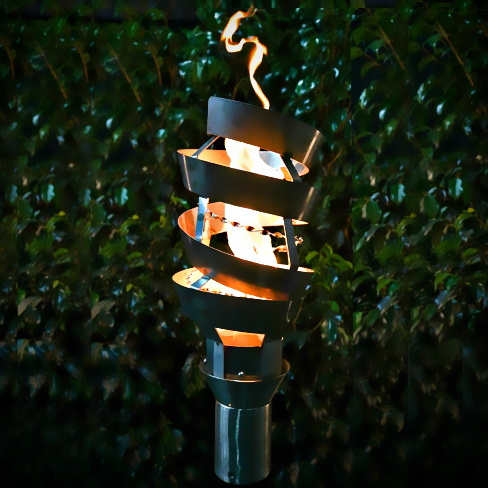 differences in how both gases can be beneficial and also how they can be a pain. It is important to look at all aspects of both gases and make an informed decision to help you in the long run. Have a seat and let the debate begin!
differences in how both gases can be beneficial and also how they can be a pain. It is important to look at all aspects of both gases and make an informed decision to help you in the long run. Have a seat and let the debate begin!
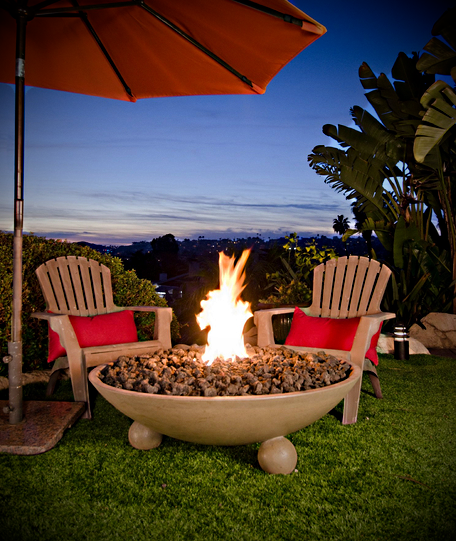 I want to begin propane and natural gas are very different types of gases. The main difference between the to is the obtainability. Propane is easy to obtain as you can get a propane tank at the gas station down the road. Natural gas can be a little tougher to obtain as this has to be installed by a local utility company that may not be available to everyone.
I want to begin propane and natural gas are very different types of gases. The main difference between the to is the obtainability. Propane is easy to obtain as you can get a propane tank at the gas station down the road. Natural gas can be a little tougher to obtain as this has to be installed by a local utility company that may not be available to everyone.
Another difference is how they burn. Propane burns clean and emits practically no harmful fumes into the environment. Natural gas does emit more fumes when burned and can be harmful to the environment as it emits a good amount of carbon monoxide. This is considered a greenhouse gas and is very harmful to the environment. Natural gas and propane both are considered a clean-burning fuel alternative compared to coal or wood.
Propane is heavier than air gas whereas natural gas is lighter than air. This means that if there is a leak with propane, the propane will pool and can potentially be dangerous if in an enclosed space. Natural gas being lighter, will dissipate quickly when leaked. Remember, both gases are extremely dangerous in enclosed areas and should be monitored for leaks.
Some Like It Hot
Now that we have gone over the important safety and information parts of the war between propane and natural gas, let's dig into the heating aspect. Both gases are used to heat homes, fireplaces, fire pits, and grills, etc. Gas is a common option because it is more efficient when heating than wood, coal, or electricity. The energy efficiency of heating from gas is healthier for the environment, as well as, gas produces more heat than most heating options.
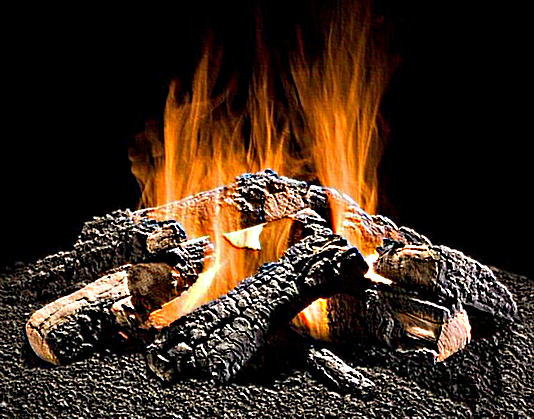 Propane heat is more efficient as it heats at 2,516 BTUs per one cubic foot, whereas natural gas heats at 1,0330 BTUs per cubic foot. BTU stands for British Thermal Unit and is how most heating options are measured. Propane gas heats at a much higher rate than natural gas. To be exact, propane gives about twice the amount of energy than natural gas. Due to propane heating more, this also means that propane uses less than natural gas. Natural gas may not heat as much as propane and use more to heat but it is still extremely efficient when heating your grill or fireplace.
Propane heat is more efficient as it heats at 2,516 BTUs per one cubic foot, whereas natural gas heats at 1,0330 BTUs per cubic foot. BTU stands for British Thermal Unit and is how most heating options are measured. Propane gas heats at a much higher rate than natural gas. To be exact, propane gives about twice the amount of energy than natural gas. Due to propane heating more, this also means that propane uses less than natural gas. Natural gas may not heat as much as propane and use more to heat but it is still extremely efficient when heating your grill or fireplace.
When it comes to the heating aspect, propane rules. Natural gas is just as energy-efficient and is less likely to change the taste of food and has less of a smell aspect to the gas. If you are looking to heat more and use less then propane is the way to go. Everyone wants to make sure they are making the right choice when it comes to heating their home or the heat they use to cook on their stove or grill. Just remember that if you're looking for a gas that packs the heat punch, propane is the way to go.
Show Me The Money
I saved the best for last...cost. This is going to be a huge deciding factor in the propane vs. natural gas war. We all want to be aware of the money we spend and how we spend it. So which gas is more budget-friendly? The easy answer is natural gas. But we don't take the easy way out so let's march ahead.
Natural gas is provided by your local utility company and as such, it is charged by your usage. Since you are billed monthly it is super easy to budget the roundabout amount you will have to dish out each month and monitor your usage. With propane, you have to either replace the tank on your grill or have your propane tank refilled, this can be costly. Propane is much more expensive than natural gas and can be difficult to budget due to your propane not being monitored as regularly.
Even though propane is a more expensive gas, keep in mind that the same amount of propane used as natural gas produces twice as much heat. Compared to electric, 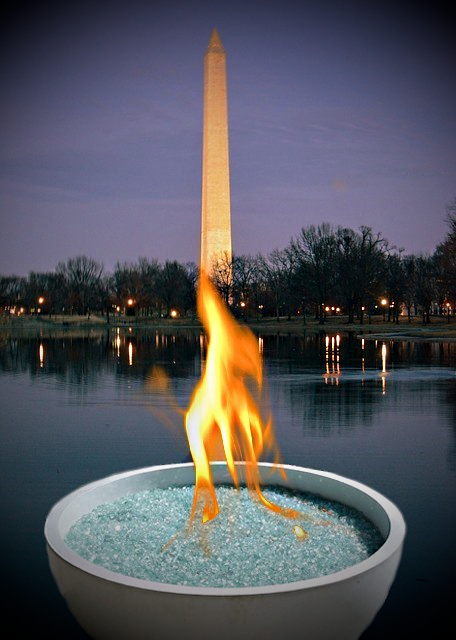 wood, or coal either gas is going to be lighter on your wallet and more energy efficient. You also need to keep in mind that if you are choosing to convert to gas the cost you will need to look into.
wood, or coal either gas is going to be lighter on your wallet and more energy efficient. You also need to keep in mind that if you are choosing to convert to gas the cost you will need to look into.
Natural gas must be installed by a professional by your local utility company. This can be costly upfront to run a line to the source you need the gas for. But in the long run, it may be cheaper than propane as well as lower other utility bills you may have. The way you use your natural gas also impacts this and I would suggest looking into what you will be using the gas for prior to making the decision.
Propane is much easier to install and can be cheaper if you are only using the propane for certain items. For example, most use propane for their grill or fire pit. They both can have a smaller propane tank that you can purchase close to home and only when needed. Because let's be realistic, you aren't going to use those items year round as most locations have seasonal changes. Therefore the propane option may be the way to go.
The cost of propane is higher than natural gas. When deciding on if and what you want to convert to, always look at all sides of the equation. Keep in mind what items will be used on the gas you're converting to or currently using and then choose accordingly.
In The End
Hopefully, the information we have provided you helps bring you closer to your decision on which gas to use. We want to help your items be more efficient and budget-friendly for everyone. The propane vs. natural gas war is ultimately a decision that you have to make that works for your lifestyle and what you need from them. If you're still not sure, you can always reach out to us and we will guide you to the light!
FAQ's
Is Propane more expensive than natural gas?
- Propane is more expensive than natural gas. But natural gas can be more economical and both are more efficient and cheaper than electric or wood.
Is there a difference between propane and natural gas?
- Yes. These are two completely different types of gas although they both contain components of each other at some point throughout the extraction and refinement process. Natural gas is made up of mostly methane and propane is a refined fuel made up of hydrocarbon like butane, and is apart of other materials.
Can natural gas items run on propane?
- Technically speaking, the answer is no. You cannot use the gases on one item as they are different without converting completely. Propane being heavier and higher pressure needs a larger escape than natural gas which is lighter with low pressure. If you want to use one gas over the other a conversion kit is required to convert the item to either propane or natural gas.
Can natural gas be bottled like propane?
- You can bottle natural gas similar to propane. This is done by pressurizing the natural gas to liquid form in order to place the gas into a container. This is not to be practiced unless you are a professional with the proper tools needed.
Which gas burns hotter? Natural gas or propane?
- Propane burns two times hotter than natural gas. This is based on the same amount of gas usage as well.
No posts found



